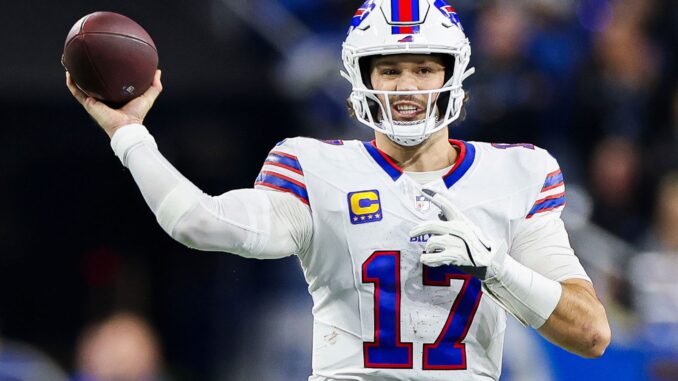
Over the last 25 years, the Buffalo Bills have been involved in several high-profile trades, some of which have not worked out in their favor. Despite their passionate fan base and moments of success, the team has faced a string of trades that left them on the wrong side of the deal. These trades often involved letting go of valuable players in exchange for uncertain returns, and some of these decisions are still scrutinized today.
One of the most infamous trades in recent history was the 2018 deal that sent quarterback Tyrod Taylor to the Cleveland Browns. Taylor had been a steady, if unspectacular, starter for the Bills. In exchange for Taylor, the Bills received a third-round pick and a late pick, which many felt was insufficient given Taylor’s performance as a reliable starting quarterback. At the time, the Bills were entering a rebuilding phase under head coach Sean McDermott and general manager Brandon Beane, but many questioned whether they were giving up on Taylor too soon, especially as he had helped the team to its first playoff appearance in 17 years just the season before. The Bills’ decision to trade Taylor eventually led to the selection of Josh Allen in the 2018 NFL Draft, a move that ultimately worked out in the team’s favor. However, Taylor’s departure, combined with the team’s struggle to find consistent quarterback play in the years before Allen’s emergence, still lingers as a questionable moment in the franchise’s history.
Another trade that didn’t benefit the Bills was the 2008 decision to send running back Willis McGahee to the Baltimore Ravens. McGahee had been a key player for the Bills’ offense, providing both power and versatility at running back. In return, the Bills received a pair of third-round picks, a fifth-round pick, and a seventh-round pick. While the team gained several draft picks, McGahee went on to have a productive career in Baltimore, including a Pro Bowl season in 2007. Meanwhile, the Bills struggled to replace McGahee’s production, and the picks they received didn’t yield much in terms of impactful players. In retrospect, this trade is often seen as a missed opportunity to build around McGahee, who had the talent to be a cornerstone piece for the Bills’ offense.
One of the most notable trades that the Bills regret is the 1999 deal that sent wide receiver Andre Reed to the Washington Football Team. Reed had been one of the most dynamic wide receivers in the NFL, a Hall of Fame talent who helped the Bills reach four straight Super Bowls. His departure marked the end of an era in Buffalo, and while the Bills did receive draft picks in exchange, they couldn’t replicate Reed’s impact. Reed went on to have a strong career with Washington, proving that the Bills were better off keeping one of their franchise legends. This trade is remembered as a misstep, as the team struggled to replace Reed’s playmaking ability in the years that followed.
These examples reflect a pattern in which the Bills have sometimes failed to maximize their trades. Whether it’s letting go of players like McGahee and Reed too soon or failing to get a fair return for assets like Taylor, the Bills’ history of trades shows the difficulty of rebuilding and reshaping a roster in the NFL. Despite these setbacks, the team has bounced back and is now considered one of the most competitive in the league, especially with the emergence of Josh Allen as a top quarterback. However, these past trades serve as a reminder of the importance of careful roster management and the impact that trades can have on the future of a franchise.
Leave a Reply